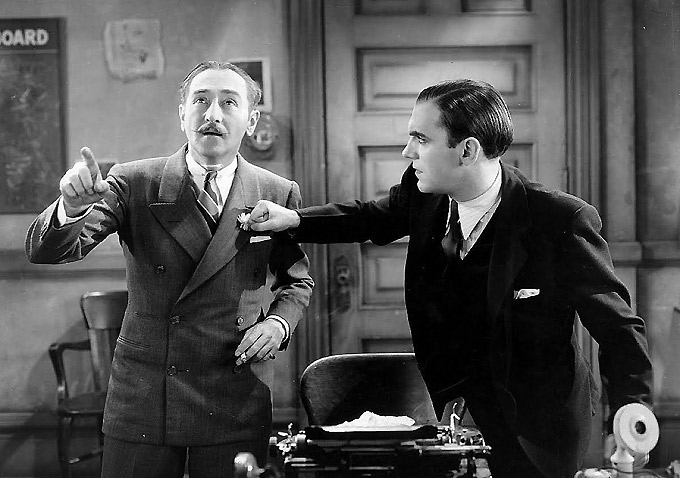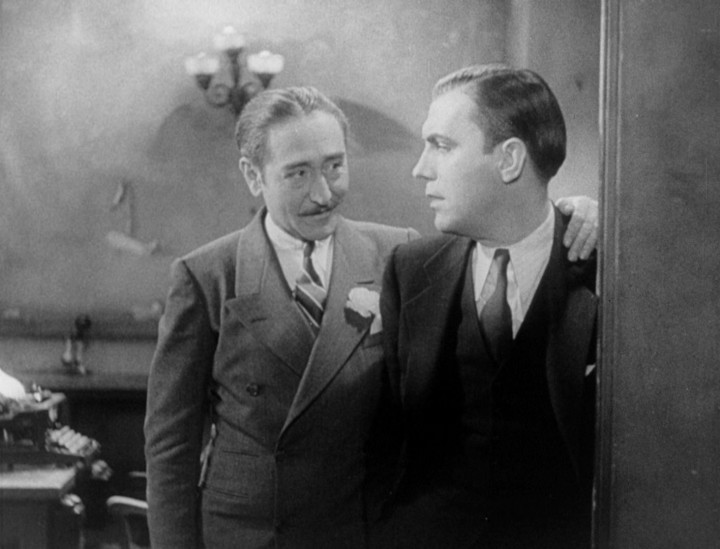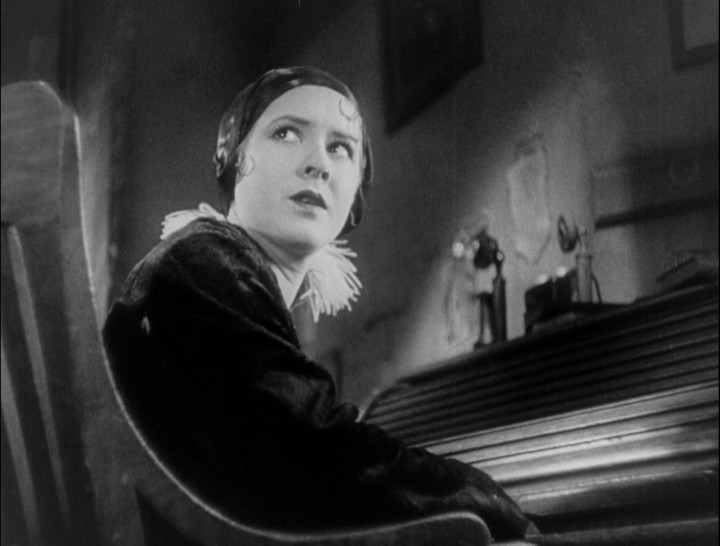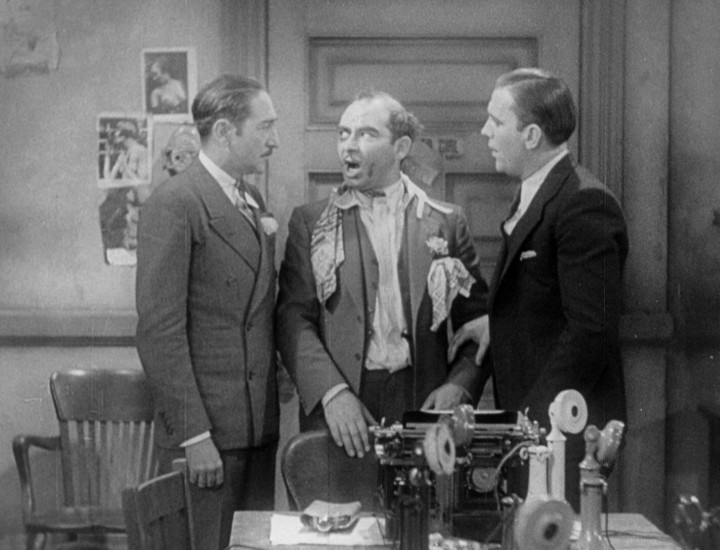Movies and the newspaper business have been a match for about as long as there have been movies, but it took the play The Front Page to create the template of the wisecracking reporter hero and, of course, it took sound to make it work onscreen. It then took about three years for The Front Page to make it to the screen. There had been a few newspaper dramas before it — including Gentlemen of the Press (1929), which was adapted from the play that was crushed on Broadway by The Front Page — but it was the film of The Front Page that sealed the deal. Oddly, it didn’t bring on the play’s stars — Lee Tracy and Osgood Perkins (Tony Perkins’ father) — with it. Instead we got Pat O’Brien and Adolphe Menjou. (Menjou’s role of Walter Burns was slated to have been played — improbably enough — Louis Wolheim, but Wolheim’s untimely death prevented that.) While Menjou was playing his role in his already established manner, relative newcomer O’Brien was taking his cues from the Tracy performance. So in a sense, Tracy — who would create the archetypal wisecracking reporter horror movie in Doctor X the following year — was still the originator of the fast-talking movie reporter.
Milestone’s film — though “opened up” — is a close approximation of the content of the play, though even in the Pre-code era its non-stop “goddams” and ruder racial slurs had to be excised (though it could hardly be called politically correct). Milestone, however, managed to figure a way around the offending word in order to keep the play’s famous final line intact — and leaving no doubt what the word was. (The closest approximation of the play is the 1970 TV production that brought Robert Ryan’s popular performance as Watlter Burns from the Broadway revival to the screen — at least to the small screen.)
Things that did get retained like openly calling Molly (Mae Clarke) “a common streetwalker” are still surprising. (Actually, in the play she’s “a Clark Street streetwalker,” but the film pretends it isn’t set in Chicago.) Similarly, retaining Walter envisioning a prayer (by the paper’s religious editor — “the one with the dirty collar”) for the city (see photo at the head of review) in Olde English type on the front page is also startling. (OK, so he isn’t allowed to call it “the goddamndest prayer you ever read.”) And there’s a reporter flipping the mayor the bird, and the presentation Bensinger (Edward Everett Horton) as an obvious homosexual, and a madame at a cathouse wanting to see Walter Burns the two dollars he owes her. But what it mostly retains is the play’s grubbiness in all its unscrubbed glory — and does it all while being breathlessly cinematic.
The Asheville Film Society will screen The Front Page Tuesday, Sept. 22, at 8 p.m. in Theater Six at The Carolina Asheville and will be hosted by Xpress movie critics Ken Hanke and Justin Souther.







There is a genre called “Newspaper Comedy”?
I usually have waves of jealousy for people in Asheville and surrounding areas for the opportunity to see these classic, brilliant films. Today it is especially true. A type of envy of those who live in this area code for opportunities like revisiting THE FRONT PAGE.
I love this film and the play. I prefer the film because it is so as you say “breathlessly cinematic”. The play works but not as well in my opinion.
Sigh. Go and see this film if you are upright.
There certainly was at least a sub-genre of that sort once upon a time. The list of movies that qualify in the wake of The Front Page — both the play and this original film version — is long and I couldn’t begin to give you anything like a comprehensive list. It gets even worse if you start factoring in mash-ups like horror pictures with fast-talking, wisecracking reporter heroes. I don’t think it’s a type of movie that existed — outside of period pieces — after WWII.
What about the movie THE PAPER (Glenn Close, Michael Keaton, dir. Ron Howard) that showed up in 1994? Does that qualify?
Since I’ve never seen it, I can’t say.